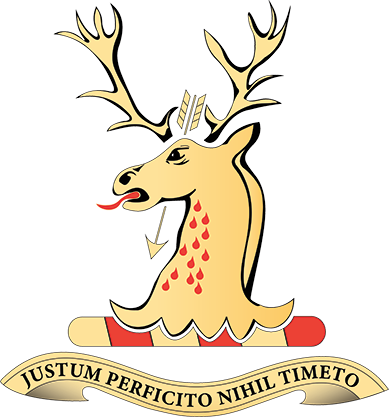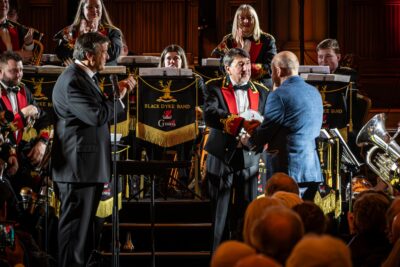The Foster Family
John Foster (1798–1879) was a British manufacturer of worsted cloth. He was the son of a colliery owner and farmer in Bradford, West Yorkshire. In 1819 he married Ruth Briggs, daughter of a landowner from Queensbury, on Bradford’s outskirts.
He set up in business the same year in a warehouse in Queensbury, on what would later be the site of the Black Dyke Mills. Initially, he would buy yarn and distribute it to hand-loom weavers who would sell back the finished cloth. By 1827 he was successful enough to build Prospect House as a family home.
In 1828 he rented Cannon Mill for wool spinning, and in 1835 erected the first part of Black Dyke Mills on land acquired from his father-in-law. By 1851 Black Dyke Mills was dominating the Queensbury landscape and at the Great Exhibition of that year he was awarded first prize for alpaca and mohair fabrics and the gold medal for yarns.
In the 1870s, he bought and renovated Hornby Castle, Lancashire to which he retired. On his death in 1879, he was succeeded by his son William, who had been made a full partner in the business of John Foster & Son since 1842. The company is still a leading manufacturer of worsted and mohair fabric.
William Foster (1821-1884), of Hornby Castle, Lancashire and of Queensbury near Bradford in West Yorkshire, was educated in Liverpool and abroad and entered the family’s textile business becoming a director in 1842 of John Foster and Son Ltd in Queensbury. The family’s Black Dyke Mills, which dominated the village of Queensbury, became one of the world’s largest makers of worsted cloth. The firm had been founded by his father John (1798–1879), who had retired to Hornby Castle and passed the company to William.
Colonel William Henry Foster (1848 – 27 March 1908) was William’s son. He was a British businessman and Conservative Party politician who took over ownership of the Mills in West Yorkshire from his father. He lived in Hornby Castle in Lancashire and sat in the House of Commons from 1895 to 1900. Foster was appointed as High Sheriff of Lancashire in June 1891, after the death of George Preston. In September 1892 he became a Deputy Lieutenant of the West Riding of Yorkshire. He served in the militia as the Lieutenant-Colonel of the 2nd West Yorkshire Yeomanry Cavalry until his retirement in 1892, with the honorary rank of Colonel.
For further information about the Foster family and the Black Dyke Mills, please vist Queensbury History Society.



